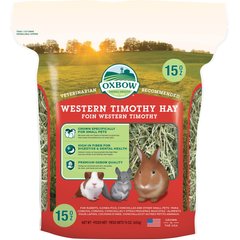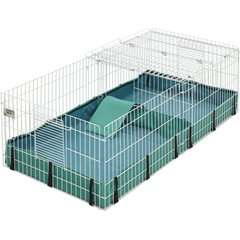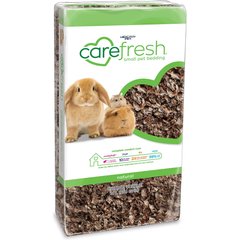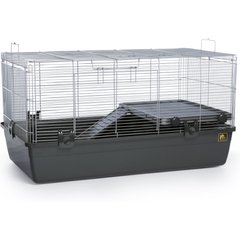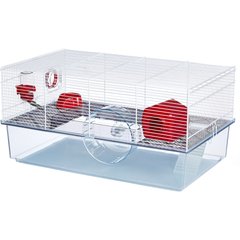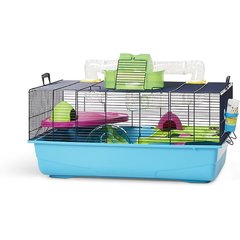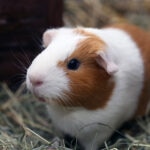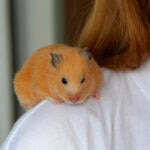Hamster vs. Guinea Pig: Which Is the Best Pet for You?
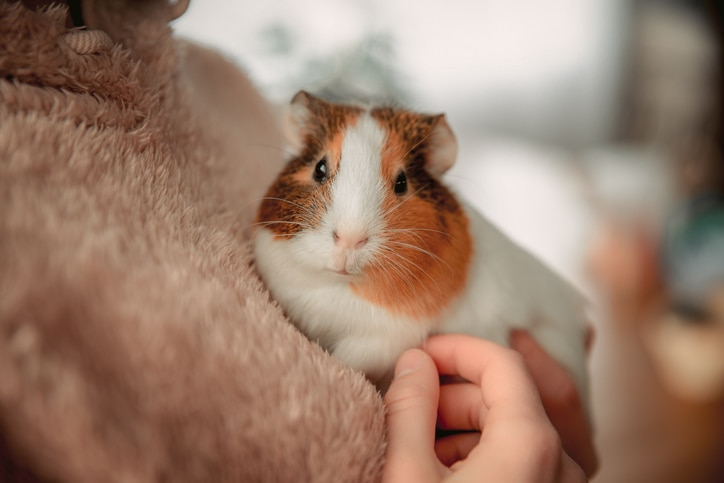
Photo by EyeEm Mobile GmbH / iStock / Getty Images Plus
Choosing between a hamster versus guinea pig can be tricky — they’re both small, adorable, and popular pets.
However, their needs and personalities are wildly different, so one may be a better fit than the other for some pet parents.
We’ve worked with the experts and explored these key differences to help you decide on the guinea pig versus hamster debate.
What Are Guinea Pigs?
Guinea pigs are social and gentle rodents native to the Andes in South America, with 13 recognized breeds—though the American, Abyssinian, and Peruvian are the most common. Despite their name, they’re not pigs at all, but members of the Cavy family.
Guinea pigs are known for their curious, friendly nature and love of companionship.
“Guinea pigs are larger than hamsters and thrive on social interaction with both humans and other guinea pigs, making them a great choice for families or anyone who wants an interactive daytime pet,” says Alyssa Short, DVM, veterinarian at Greenock Farm Veterinary Hospital in Midland, North Carolina.
What Are Hamsters?
Hamsters are small, nocturnal rodents commonly found in parts of Europe and Asia. Most hamsters are solitary creatures with an energetic personality and a love of burrowing. They prefer a quieter, more low-key lifestyle compared to guinea pigs.
“Hamsters tend to be low-maintenance companions, which makes them ideal for people with busy schedules or limited space,” says Melissa Witherell, DVM. “They do best when housed alone, as they can be territorial.”
What Are the Biggest Differences Between Hamsters and Guinea Pigs?
Although both guinea pigs and hamsters are rodents, their care requirements and behaviors are vastly different.
“Hamsters and guinea pigs differ greatly in size, care, and dietary needs,” says Dr. Short. Understanding these differences will help you choose the best pet for your lifestyle and space.
Diet and Nutrition
Guinea pigs and hamsters have different dietary needs.
“Guinea pigs need a diet that’s 80% hay (e.g., timothy hay). 20% of their diet should be vitamin C supplements, pellets, and fresh produce in small amounts,” Dr. Witherell says. Without enough vitamin C, she warns that cavies are at risk of developing scurvy, which can lead to severe health issues.
Recommended Products
On the other hand, hamsters thrive on a pelleted diet, with very limited fresh produce. Too much fresh food can even cause diarrhea, which is dangerous for their little bodies.
Enclosure and Habitat
One of the most noticeable differences between guinea pigs and hamsters is their size, and that translates to different housing needs.
Guinea pigs are larger than hamsters and don’t typically enjoy climbing or burrowing.
“Guinea pigs need solid flooring and a large enclosure with soft bedding, like fleece or unscented paper,” Dr. Witherell says.
Recommended Products
Hamsters, being smaller, need less space but benefit from multi-level cages with plenty of areas to explore.
“They love climbing through tunnels and burrowing, so their habitat should cater to those needs,” Dr. Short says. She adds that hamsters are like tiny Harry Houdinis, and need secure, escape-proof enclosures.
Recommended Products
Behavior and Personality
Guinea pigs are generally more social and enjoy interacting with people, while hamsters are more independent and prefer to be alone.
Guinea pigs enjoy being handled, often making happy noises when they are around their pet parents.
Hamsters, on the other hand, are more solitary pets and can be easily startled. “They can suffer from stress-related illnesses, particularly gastrointestinal diseases,” Dr. Short explains.
Dr. Witherell adds that hamsters require a lot of patience and time to be properly socialized.
“They may not enjoy being held or cuddled, making them less suitable for young children,” she cautions.
Lifespan
Guinea pigs generally live longer than hamsters, with an average lifespan of 5 –8 years compared to a hamster’s 2–3 years.
If you’re looking for a longer-term companion, a guinea pig may be the better choice—but keep in mind they also require more daily care and attention.
Sleeping Habits
A guinea pig and a hamster’s sleep patterns are another major difference between these pocket pets. Cavies are crepuscular, meaning they’re most active during dawn and dusk — which works well with the typical human work schedule. This makes guinea pigs easier to interact with throughout the day.
Hamsters, however, are nocturnal, meaning they’ll be more active at night. If you’re a light sleeper or prefer a pet that’s awake during the day, a hamster’s nighttime activity might not work for you.
Care Cost
While hamsters are often less expensive to care for, it’s important to note that neither guinea pigs nor hamsters should ever be considered “cheap” pets.
Because guinea pigs live significantly longer than hamsters, pet parents can expect to spend more on their cavy over time. But in general, feed costs, toys, and bedding for both hamsters and guinea pigs are usually similar in price.
Veterinary Care
Both guinea pigs and hamsters can face health issues, and it’s important for them to have regular vet visits.
Guinea pigs tend to visit the vet more often thanks to common dental issues and respiratory problems, but hamsters can have their share of issues, too, like wet tail or cheek impaction—though they’re known to be a rather hardy pet.
Can Guinea Pigs and Hamsters Live Together?
No—guinea pigs and hamsters should never live together. Their behaviors and needs are too different, and housing them in the same enclosure could be stressful and even dangerous.
“Hamsters are solitary and territorial, while guinea pigs are social and thrive in groups of their own kind,” Dr. Short says. “Housing them together could result in injuries or stress for both animals, leading to a reduced quality of life.”
How To Choose If a Guinea Pig or Hamster Is Right for You
Choosing between a guinea pig and a hamster largely depends on your lifestyle, space, and commitment level.
If you’re looking for a pet that enjoys socializing and you’re OK with more hands-on care, a guinea pig is the better choice. Pet parents can enjoy their companionship and unique personalities.
Hamsters, on the other hand, are great for those who prefer a more independent pet. They’re smaller, lower-maintenance, and generally better suited for people with limited space or time. They’re nocturnal, so you may not get as much interaction with them during the day.
Hamster vs. Guinea Pig FAQs
Q: Is it better to have a hamster or guinea pig?
A: This all depends on your lifestyle. Guinea pigs are social and interactive, while hamsters are more low-maintenance and independent. The best pet for you depends on how much space, time, and attention you can provide them.
Q: Do guinea pigs like to be cuddled?
A: Yes, guinea pigs generally enjoy being cuddled, especially when they feel safe with their pet parent. Regular, gentle handling helps them become more comfortable with affection.
External Sources

